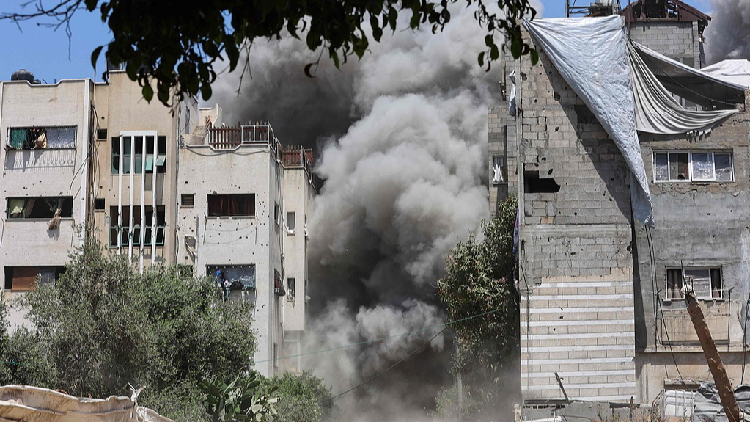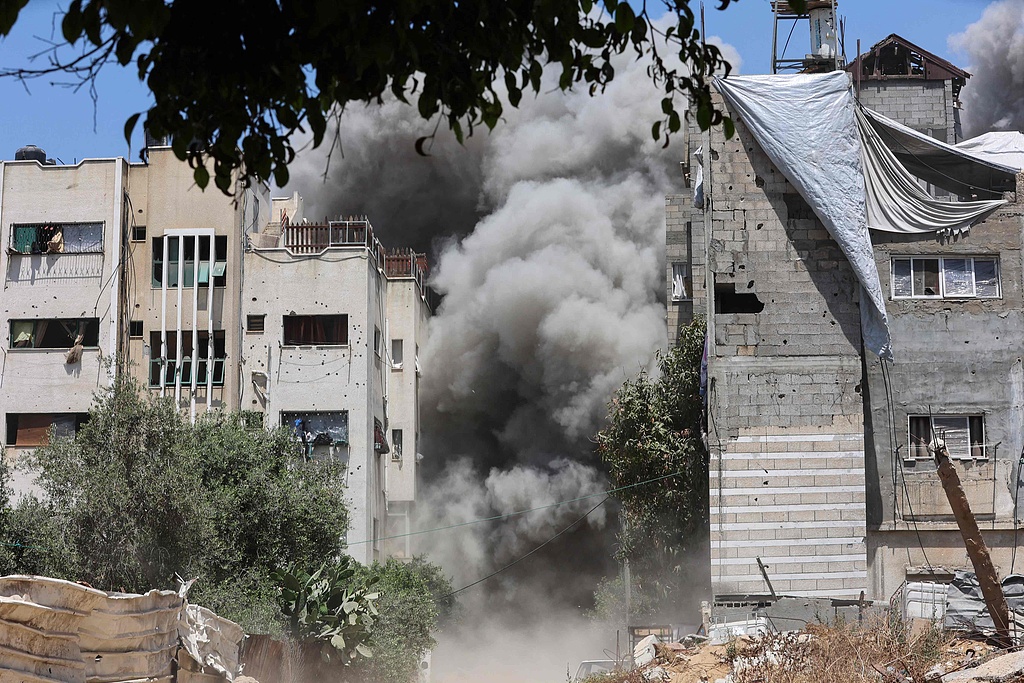Hamas Opposes U.S. Gaza Plan; Witkoff Labels Proposal 'Unacceptable'
Hamas rejects U.S. ceasefire proposal, calling for amendments amid unresolved Gaza tensions.


Hamas announced on Saturday its intention to seek amendments to the most recent U.S.-backed ceasefire proposal for Gaza, setting the stage for a renewed diplomatic standoff as fighting continues. U.S. special envoy Steve Witkoff replied swiftly and sharply, dismissing Hamas’ response as "totally unacceptable", reflecting growing tensions on the road to any potential truce.
The American proposal lays out a framework for a 60-day pause in hostilities, the release of 28 out of 58 hostages still detained in Gaza, the exchange of more than 1,200 Palestinian prisoners, and a significant increase in humanitarian shipments to the besieged enclave. However, crucial sticking points remain, particularly regarding the fate of the remaining hostages and the prospect of a permanent ceasefire.
According to health authorities in Gaza, the human cost continues to climb. Since Israel launched its military campaign on October 7, 2023, at least 54,381 people have been killed and 124,054 injured. Since the resumption of intense hostilities on March 18, an additional 4,117 deaths and 12,013 injuries have been reported, underscoring the ongoing crisis.
Hamas is calling for key changes to the deal: specifically, it wants the release of hostages in three phases over the 60-day truce period, broader aid access throughout Gaza, and binding guarantees that any agreement will culminate in a permanent ceasefire. These terms are in direct conflict with Israel’s demands, which focus on the disarmament and ousting of Hamas, along with the unconditional release of all remaining hostages.
Prime Minister Benjamin Netanyahu emphasized his government’s approval of the latest truce outline, adding that Hamas continues to reject the plan. “Israel will continue its action for the return of our hostages and the defeat of Hamas,” Netanyahu said in a formal statement, making clear that operations would persist until these objectives are achieved.
Witkoff, after receiving Hamas’ detailed response, took to social media, declaring: “It is totally unacceptable and only takes us backward. Hamas should accept the framework proposal we put forward as the basis for proximity talks.”
Contradicting allegations of outright rejection, senior Hamas official Basem Naim insisted that the group had not dismissed the deal, instead accusing Israel of presenting a distorted version of the agreement. He also criticized Witkoff for displaying “complete bias” towards Israel’s positions. In a subsequent statement, Hamas reiterated its conditions, including an immediate and permanent ceasefire, full Israeli withdrawal from Gaza, and unrestricted humanitarian access. The group stated it would release ten living hostages and the bodies of 18 others in a prisoner exchange, though specifics remain unresolved.
In light of the stalled negotiations, Israeli state media indicated that military operations in northern Gaza may intensify. Defense Minister Israel Katz delivered an ultimatum to Hamas, warning the group to “accept the deal or be destroyed.”
The conflict’s intensity was further underlined as Israel confirmed the killing of Mohammed Sinwar, a senior Hamas commander and leader of the group’s military wing in Gaza, during an airstrike conducted earlier in the month. This development follows a period of relative calm after a ceasefire established on January 19, which collapsed on March 18 when Israeli forces resumed their offensive. Humanitarian access into Gaza remains severely restricted, although some limited aid deliveries have been permitted since late May.
As both sides harden their positions amid diplomatic wrangling, civilians in Gaza continue to bear the brunt of a crisis whose resolution remains as distant as ever.




